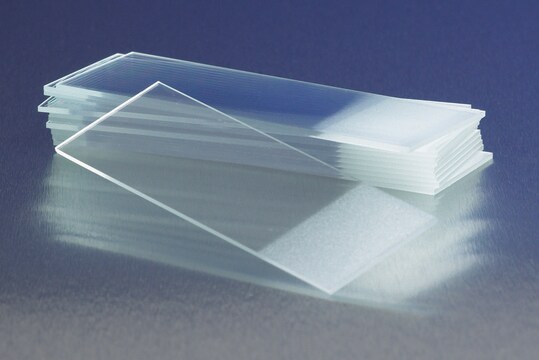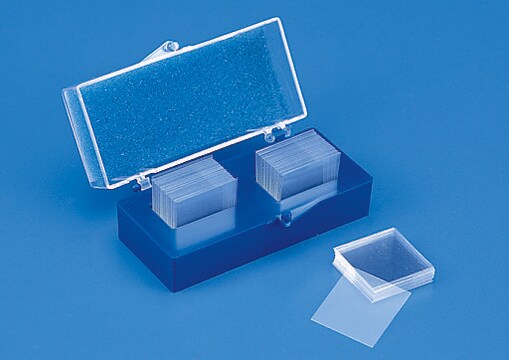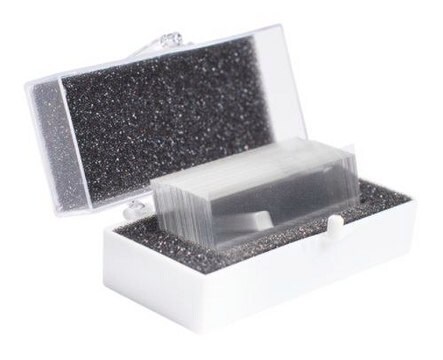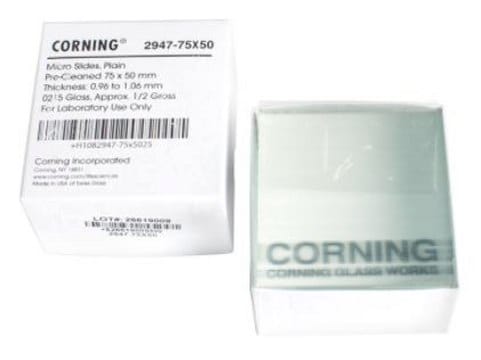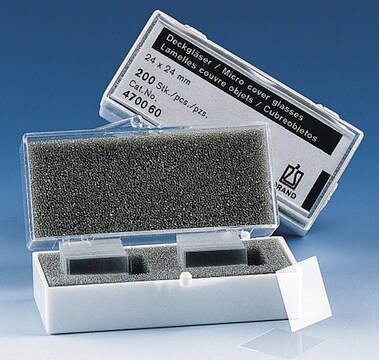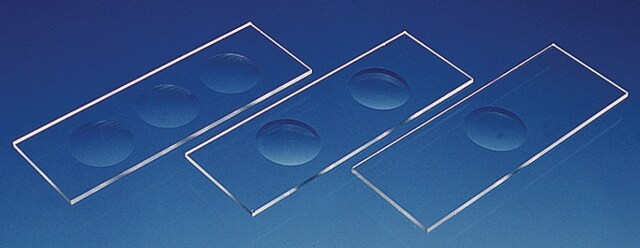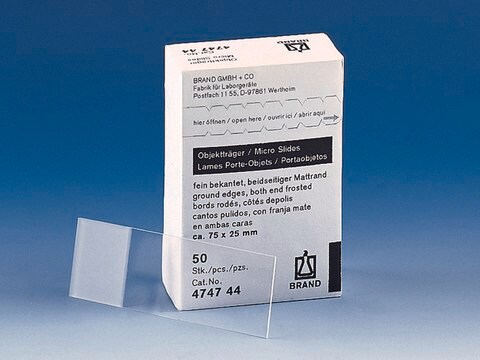S8902
Slides, microscope
plain, size 25 mm × 75 mm
Synonym(s):
glass slide
Sign Into View Organizational & Contract Pricing
All Photos(1)
About This Item
UNSPSC Code:
41122600
NACRES:
MA.01
Recommended Products
material
glass
packaging
case of 20
box of 72 slides
size
25 mm × 75 mm
binding type
non-treated surface
Looking for similar products? Visit Product Comparison Guide
General description
Sealed in a moisture absorbing desiccant pack which can function as a drying stand and a storage box. Slides are 1 mm thick.
Our microscope slides are made of high-quality white glass with low iron content, no green tint with fine texture and transparency; these slides are also corrosion-resistant. The edges are ground smooth to help eliminate sharp cutting surfaces and safe handling. They are packed in a special thermoform plastic box to minimize exposure to moisture and dust (each slide is precleaned).
Conform to Federal specification NNN-S-450.
Our microscope slides are made of high-quality white glass with low iron content, no green tint with fine texture and transparency; these slides are also corrosion-resistant. The edges are ground smooth to help eliminate sharp cutting surfaces and safe handling. They are packed in a special thermoform plastic box to minimize exposure to moisture and dust (each slide is precleaned).
Conform to Federal specification NNN-S-450.
Certificates of Analysis (COA)
Search for Certificates of Analysis (COA) by entering the products Lot/Batch Number. Lot and Batch Numbers can be found on a product’s label following the words ‘Lot’ or ‘Batch’.
Already Own This Product?
Find documentation for the products that you have recently purchased in the Document Library.
Customers Also Viewed
Angeliki Diamantopoulou et al.
Materials (Basel, Switzerland), 12(16) (2019-08-10)
Surface functionalization of TiO2 inverse opals by graphene oxide nanocolloids (nanoGO) presents a promising modification for the development of advanced photocatalysts that combine slow photon-assisted light harvesting, surface area, and mass transport of macroporous photonic structures with the enhanced adsorption
Salman Ul Islam et al.
Oncotarget, 8(34), 56659-56671 (2017-09-17)
Pre-mRNA processing factor (PRPF) 4B kinase belongs to the CDK-like kinase family, and is involved in pre-mRNA splicing, and in signal transduction. In this study, we observed that PRPF overexpression decreased the intracellular levels of reactive oxygen species, and inhibited
Related Content
Three-dimensional (3D) printing of biological tissue is rapidly becoming an integral part of tissue engineering.
Our team of scientists has experience in all areas of research including Life Science, Material Science, Chemical Synthesis, Chromatography, Analytical and many others.
Contact Technical Service